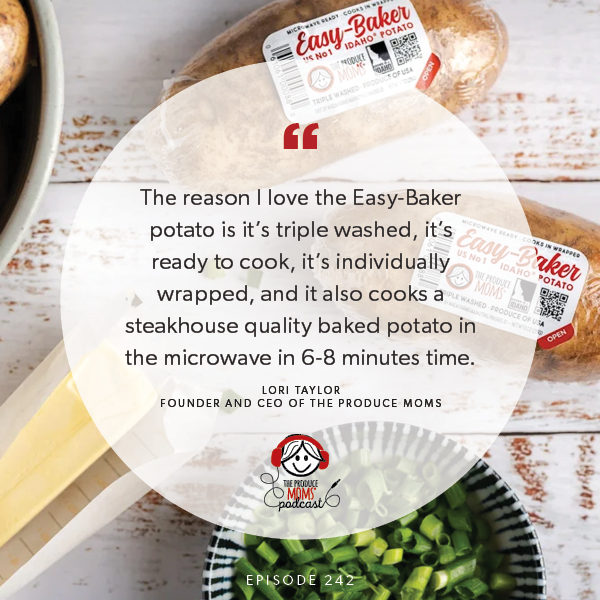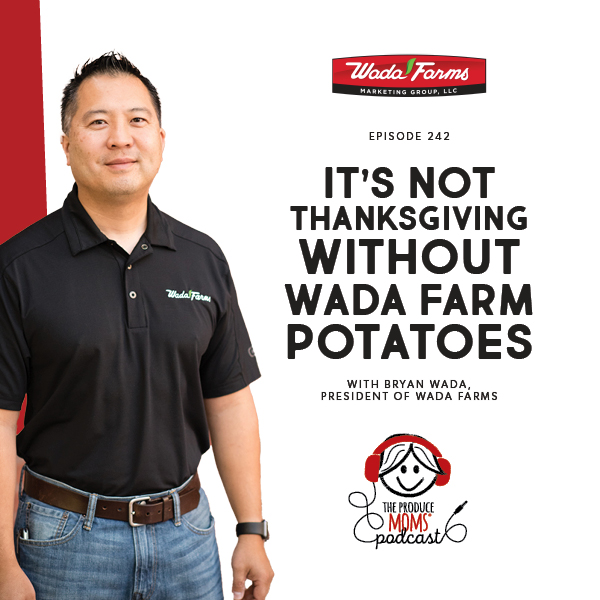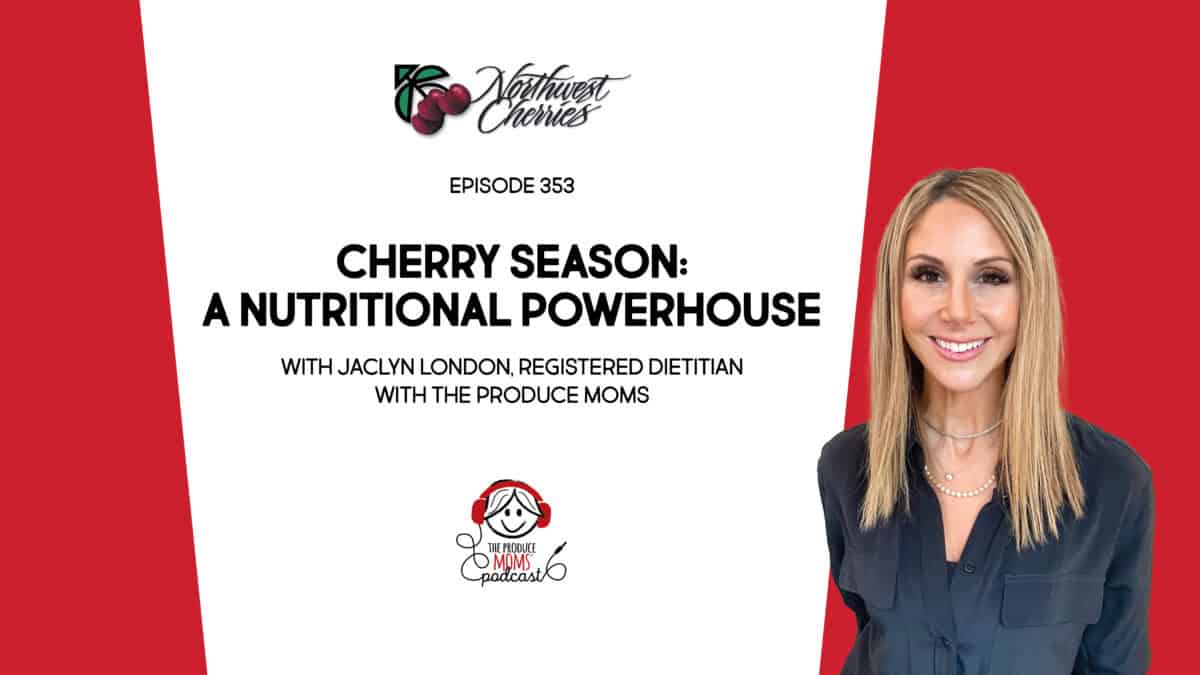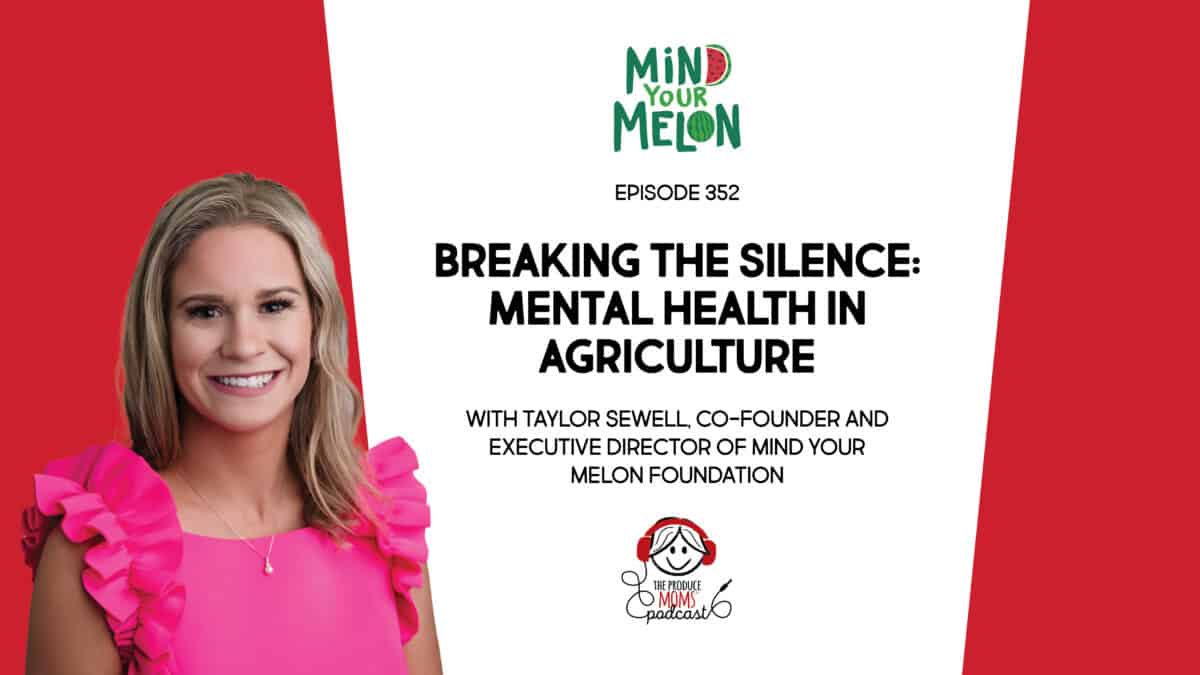Episode 242: Bryan Wada
Nov 23, 2022, Updated Dec 08, 2022
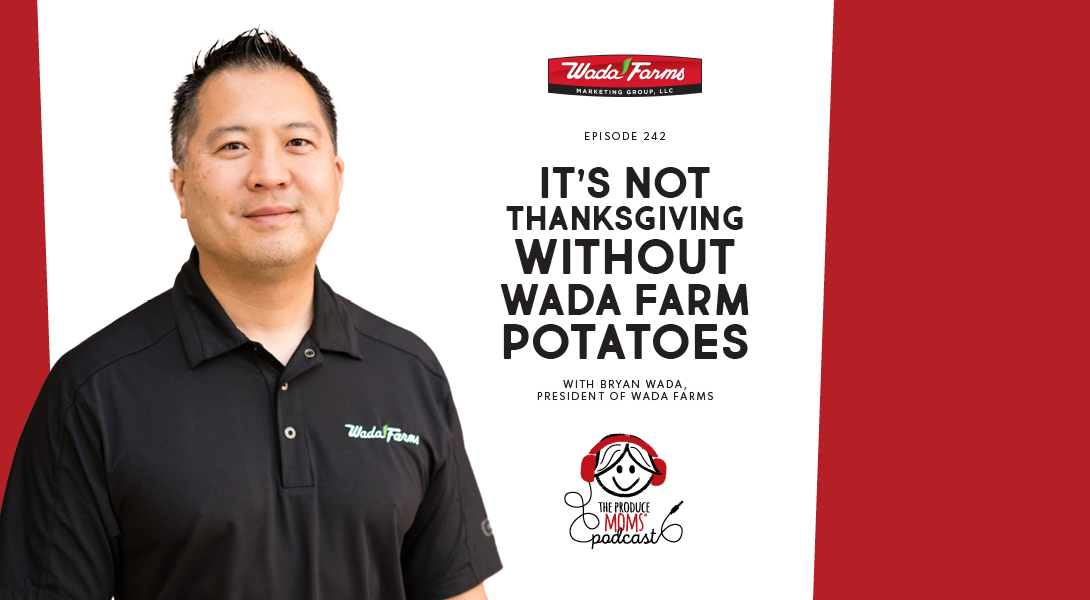
This post may contain affiliate links. Please read our disclosure policy.
“There’s a good chance you’ve had a Wada Farms potato since they are truly the leader in the game.” Lori Taylor (28:27-28:31)
Even if you haven’t heard of Wada Farms, you’ve probably eaten one of their Idaho spuds that are leaders in the potato market. Wada Farms has been family owned since 1943 and originated from Bryan’s father, Frank, an immigrant from Japan. Originally growing strawberries in San Clemente, California, Frank needed to move his family somewhere more inland to avoid being placed in an internment camp during World War Two. Setting their roots down in Pingree, Idaho, Frank and his wife started growing potatoes on 160 acres of land.
Today, Wada Farms is one of the U. S’s largest suppliers of potatoes, sweet potatoes and onions, and as a grower and a packer, they have relationships with brands like Dole, Idahoan, the National Onion Association, and of course, The Produce Moms! Their potatoes come in varieties like Russets, Reds, Golds, and Fingerlings, and they sell potatoes pre-wrapped in foil for easy grilling, in microwaveable bags, tray packs, as “chippers” for fries and wedges, and as an Easy-Baker potato in partnership with TPM.
As a sharecropper farm, Wada Farms grows potatoes every three years. In between their potato crops, they raise rotational crops like wheat, barley, corn, alfalfa, quinoa and watermelons. “As potato farmers, we really get one shot at the crop,” Bryan says, which is true considering their two-month harvest from August to October generates the entire crop they have to use until next fall. 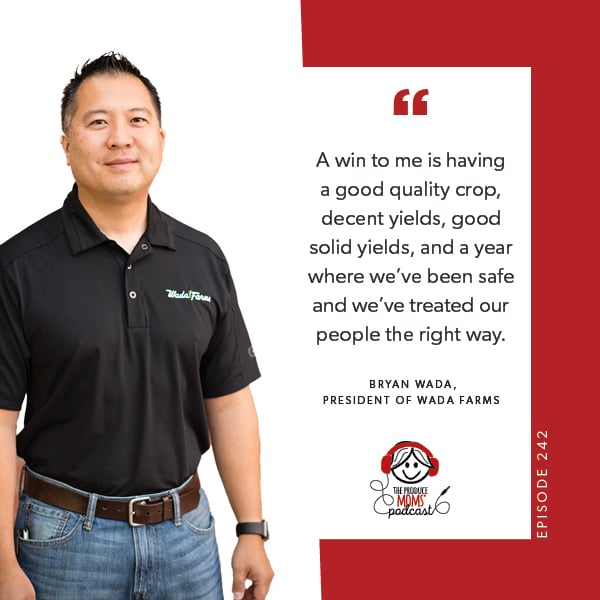
“Crop protection is a part of farming. It doesn’t matter what you’re farming, you have to make sure as a grower that you are doing your diligence to protect your profitability, your yield after you plant the crop, your profit, making sure you’re taking care of any human being that’s working from the field to the packing house, to all the way down stream, and you have to make sure the product is safe for households like ours to eat.” Lori Taylor (18:41-19:14)
Traceability is at the top of Wada Farm’s priorities as well, and since they’re a grower and a packer, it makes it easy for Bryan to be able to trace any of their potatoes they’ve packed right back to the field. Even though potatoes are typically safe in general because they’re grown underground and most individuals wash and cook them before consuming them, being able to trace each step a piece of produce has gone through going from the farm to the homeowner’s table is essential. Wada Farms does everything they can to do things according to state and federal guidelines and their own stringent food safety programs that involve lots of testing along the way.
Since we were speaking to one of the top U.S. potato growers in the nation, we had to ask Bryan what the right way is to clean and store your potatoes! Immediately, Bryan reminded us to never wash potatoes well in advance of cooking them. The dirt that’s on your potatoes when you buy them acts as a natural protector and barrier to keep them safe from other environmental elements. When you are ready to cook them, wash them by running under water and, if you want, use a brush to get the last particles of dirt off of the potato. Store them in a dry, cool, dark place like a pantry or cabinet, away from sunlight, and never refrigerate them.
As you can see, Wada Farms is committed to providing the highest quality crop possible, which is why we are so proud to have a TPM partnership with them! Our Easy-Baker Wada Farms potatoes are individually wrapped and ready to cook, providing you with a steakhouse quality baked potato from the microwave in as little as 6-8 minutes! These are perfect if you need a quick, healthy, satisfying lunch at work or at home, or have a smaller household in general. Plus, as we see inflation drive up the cost of food prices, this is a great, economical choice for any budget.
Find out more about Wada Farms potatoes, onions and other fresh produce, and where you can find our Easy-Baker microwave-ready baked potatoes in partnership with Wada Farms at your local Walmart or other retailer: www.wadafarms.com.
How to get involved
- Join The Produce Moms Group on Facebook and continue the discussion every week!
- Reach out to us – we’d love to hear more about where you are in life and business! Find out more here.
Previous episodes you may enjoy
- Episode 241: John Jacobsen
- Episode 240: Whitney Ellersick
- Episode 239: Brittain Ladd
- Episode 238: Lori Castillo
- Episode 237: Katherine Sizov, Jay Jordan, and Shebaz Singh
- Episode 236: Rick Nahmias and Nkemdilim Nwosu
If you liked this episode, be sure to subscribe and leave a quick review on iTunes. It would mean the world to hear your feedback and we’d love for you to help us spread the word!
